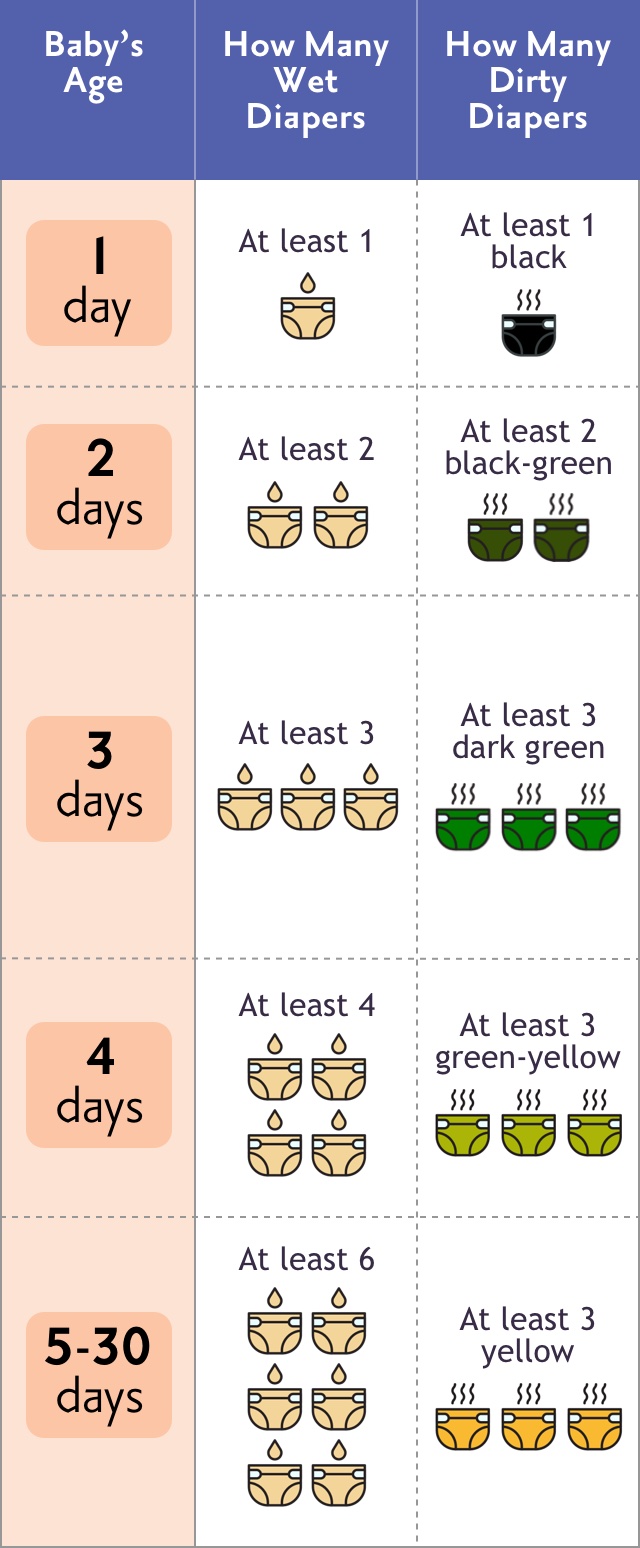Solutions to Your Baby’s Tummy Troubles
Both breastfed and formula-fed babies may experience constipation during their first year of life. “Constipation in babies can be a common concern, but Texas WIC has great suggestions to help your baby’s tummy move smoothly,” says Riana Dalton, RD, Registered Dietitian at Texas WIC.
What is Constipation?
Constipation happens when your baby’s stool becomes difficult to pass, which can sometimes be painful. These stools are small, hard and dry which makes passing them uncomfortable for your baby.
What's Normal?
Days 1 through 5
In the first few days of life, babies have dark, sticky stools called meconium. By day 3, the stool turns a greenish color. By day 5, breastfed baby stool should be yellow and seedy while formula fed babies’ stool is more formed, paste-like and yellow to tan in color.
Depending on the baby’s primary source of nutrition, each baby will have their own stool patterns and frequency.
The first month
In the first month of life, breastfed babies tend to have frequent stool diapers each day. From 3 days to 1 month of age breastfed babies should have at least three stool diapers every 24 hours.
Formula-fed newborns tend to have about four or five stool diapers per day in the first week of life, and around two stool diapers per day between weeks 2 through 4.
Beginning at about 1 month of age, all babies may have fewer stools each day or a stool every few days. Normal stool is not too dry or hard and is easy to pass even when babies are older and don’t have frequent stool diapers.
A closer look at wet and dirty diapers in the first month
As your baby starts eating solid foods around 6 months of age, stool can be a combination of yellow, green, brown and other colors. If your baby’s stool is bright red, pale white, grey or black like coffee grounds contact your baby’s health care provider right away.

Diaper Chart
Baby's age: 1 day
- How many wet diapers: At least one
- How many dirty diapers: At least one black
Baby's age: 2 days
- How many wet diapers: At least two
- How many dirty diapers: At least two black-green
Baby's age: 3 days
- How many wet diapers: At least three
- How many dirty diapers: At least dark-green
Baby's age: 4 days
- How many wet diapers: At least four
- How many dirty diapers: At least three green-yellow
Baby's age: 5-30 days
- How many wet diapers: At least six
- How many dirty diapers: At least three yellow
Signs of Constipation
- More fussiness or colic than usual.
- Significant decrease in amount of stool diapers per day.
- Stools that appear hard or dark in color, or those that contain blood.
- Straining for over 10 minutes without passing a stool.

Causes of Constipation
A range of factors can affect your baby’s digestive tract and cause constipation, such as:
- Not getting enough breastmilk or infant formula.
- Infant formula that is not mixed or prepared properly.
- Introduction to solid foods before around 6 months of age.
- Introduction of infant formula to a breastfed baby.
- Changing between different types of infant formulas.
- Use of certain medications.
- Loss of fluids due to vomiting, fever or dehydration.
- Certain medical conditions that affect muscle tone, like Down Syndrome and Cerebral Palsy. Talk to your health care provider about a personalized treatment plan.

Ways to Help Prevent Constipation
- Make sure your baby is getting enough breastmilk or infant formula by feeding every time they show signs of hunger.
- If formula feeding, mix and prepare infant formula according to the formula label’s instructions.
- Wait to introduce solid foods until around 6 months of age when baby shows signs of readiness.
You can determine whether constipation is happening and what may be causing it by monitoring your baby’s diapers.

Concerns with Constipation
Contact your baby’s health care provider right away if you see other symptoms such as:
- Vomiting.
- Blood in the stool.
- A belly that looks bloated or filled with gas.
- Constipation not getting better with treatment.
It’s important to call your baby’s health care provider before giving medications such as laxatives or suppositories.
For more information on this topic or for any other concerns, please visit your baby’s health care provider or your WIC clinic for more assistance.



 Have any questions?
Have any questions?
